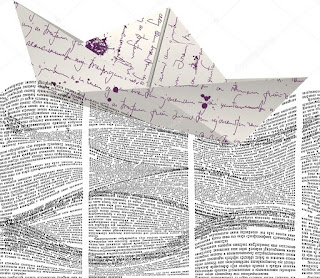On 18 October, a pandemic discussion took place for three and a half hours at Hotel Pierre in New York. It was called “Event 201”. Three parties jointly hosted it. The Johns Hopkins Center for Health security, the World Economic Forum and the Bill and Melinda Gates Foundation. Bill Gates was not present himself. However, he was represented by one of the foundation’s presidents.
The invite-only event included medical professionals,
policy experts, business analysts, people from public health and civil society.
Directors of CDC, USA as well as CDC, China (Centers for disease control and prevention)
were present. The varied group included directors of Marriott hotels,
Lufthansa, Johnson & Johnson, ANZ bank group, and media experts. A select
invited audience of 130 people attended. A livestream of the event was
available to everyone.
*****
The group discussed how important it was for governments
to join hands with private companies. What should be done with supply chains
for rapid and equitable distribution of medical measures. The importance of all
countries working together with transport companies to maintain travel and trade.
Ways of combating mis- and dis-information. The CDC, China person raised the
issue of countering possible rumours that the coronavirus was man-made. All participants
agreed consistent health messaging was important. The final recommendation
urged international cooperation both in preparing and handling a severe global pandemic.
*****
Nobody in the hall was wearing a mask. Everyone shook
hands. People who knew each other well, hugged. The distance between two
panelists was just one foot or so.
Confused? Event 201, the pandemic conference, happened
on 18 October 2019, not 2020. The event was held just six weeks before the
start of the current pandemic.
*****
Event 201 was a simulation exercise that discussed the
dilemmas and a possible response to a hypothetical severe, worldwide pandemic.
It talked of a coronavirus that would start in a single country, and then
spread across the whole world. The panel feared the pandemic would bring profound
economic consequences. Travel bookings would go down by 45%. GDP would be down
by 11%, and stock markets between 20% and 40%. Faith in governments would be
shattered, and distrust towards social media would grow.
The model projected 26000 deaths after a month,
660,000 deaths after three months. The fictional scenario ends after 18 months,
with 65 million deaths.
*****
It is worthwhile to browse the Event 201 website. So
close to the actual pandemic, it provided ammunition to conspiracy theorists. After
the actual pandemic started, the Event 201 organisers had to issue a statement
clarifying its model was not talking of the covid-19 virus, and that 65 million
deaths should not be construed as a prediction.
Since 2015, Bill Gates has been talking about Global
Pandemics being the biggest threat. Johns Hopkins had organized similar
simulation exercises that portrayed fictional scenarios of a smallpox attack
(remember Russia and the USA both still hold live samples of the smallpox
virus). In May 2018, an event called ‘the Clade X exercise’ had discussed
preventing a pandemic.
*****
The point is that the Covid-19 pandemic was not as unpredictable
or improbable as it is made out to be. In the last few years, the number of
viruses causing epidemics has grown dramatically, and averages about 200 a
year. Fortunately, none of them had so far caused a severe global pandemic.
What if the next virus did? That was why the exercise was called Event 201.
The threat of a pandemic has been at our doorstep for
many years. This week, I will write more on the specific warnings and pandemic-prevention-projects
that existed.
Ravi








